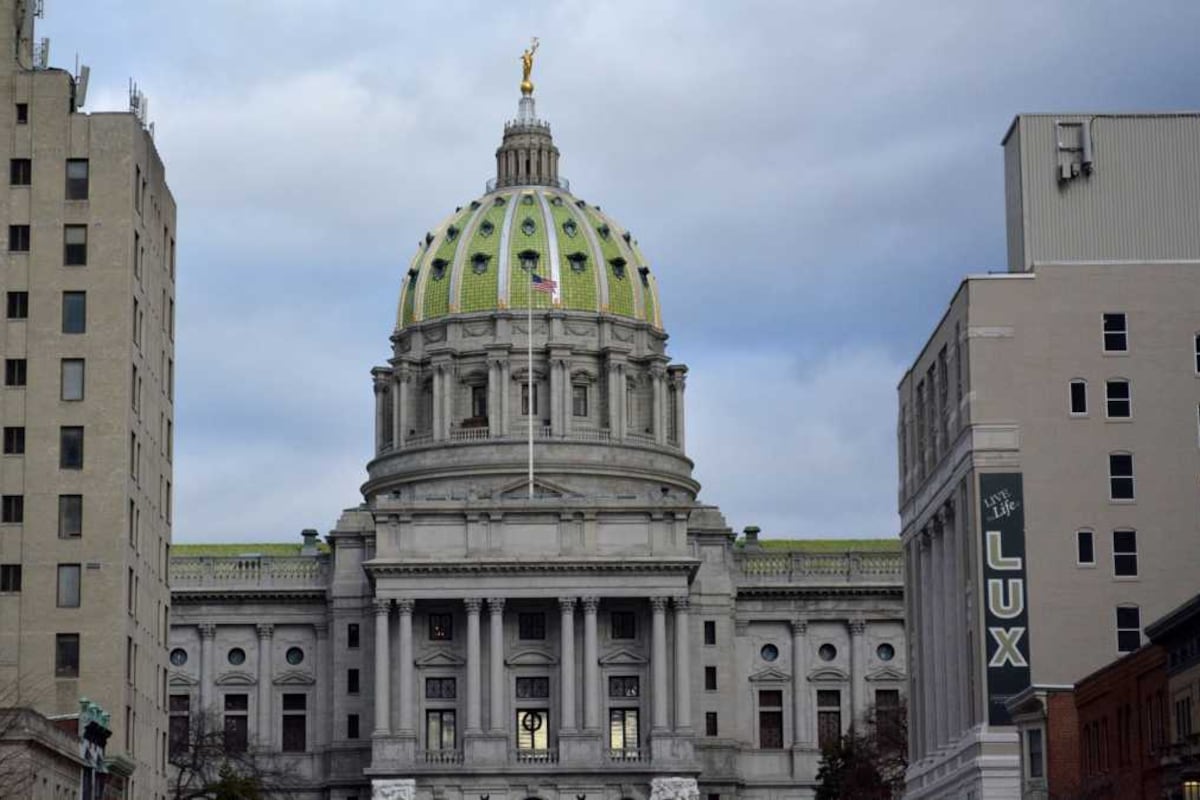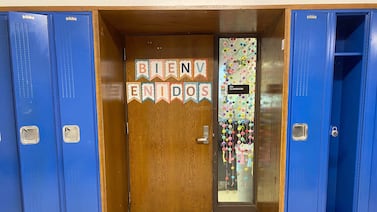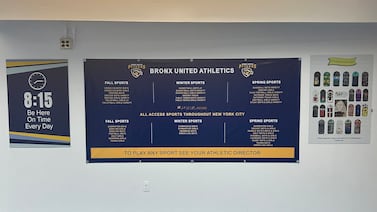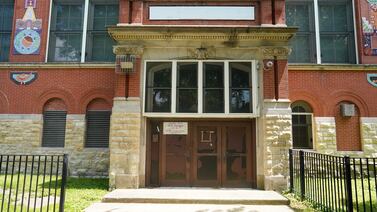Republican legislative leaders wrapped up their case in Pennsylvania’s landmark school funding trial Thursday, after presenting 10 witnesses to bolster their position that the state’s system of public education – 500 school districts in which some spend nearly three times as much per student as others, where poor students generally get less and wealthy students get more – meets the basic constitutional requirement of being “thorough and efficient.”
The plaintiffs in the case want the Commonwealth to invest more money in public education and distribute it more fairly. But the GOP legislators, who are the only state officials putting up a defense against increased funding, used their witnesses to highlight their preferred alternatives – charter schools, especially cybers, and tax breaks for corporations to fund scholarship organizations that help students attend private schools.
The case, now in its fourth month, has highlighted two drastically different views of education: Republicans legislators view the public school districts as one piece of the state’s educational offerings, while the plaintiffs say the state has failed to maintain a constitutionally required system of public education because of the huge gaps in spending between rich and poor districts.
Anthony Holtzman, representing Senate President Jake Corman, told Commonwealth Court Judge Renée Cohn Jubelirer that the cyber charters, for instance, are an “alternative to local public school districts,” and he urged her to consider them “a piece of the system of public education” when she is “assessing whether the system is unconstitutional.”
Republican legislators’ first witness also was the head of a private Christian school that gets funding from the state’s Educational Improvement Tax Credit and the Opportunity Scholarship Tax Credit.
Those two programs currently cost $340 million, and Republican legislators have sought to increase that amount significantly each year while generally paring down Democratic Gov. Tom Wolf’s requests for hikes in the state’s basic education subsidy.
Jubelirer must rule on whether the current method for funding education meets the constitutional standard.
The case was first brought by six school districts, three families and two statewide advocacy groups nearly seven years ago. They called 29 witnesses from the plaintiff districts and Philadelphia, which is not a plaintiff, as well as several economists and researchers.
Those witnesses painted a picture of inequity and poor school conditions – one bathroom for 75 kindergartners, in one case, falling-down ceilings, no art and music in elementary school, and insufficient funds to attract qualified teachers.
The crux of the Republican legislators’ argument became clear before they called any witnesses. Attorney John Krill, representing House Speaker Jake Corman, suggested that unequal spending on education better served the needs of the Commonwealth.
During his cross examination of Matthew Splain, superintendent of the Otto Eldred School District, Krill asked why someone on the “McDonald’s career track” should study Algebra, or whether a carpenter needs to know biology. Splain had just testified about how his 600-student district on the New York state border often lacked resources to hire enough qualified teachers in subjects like math and science.
“The Commonwealth has many, many needs,” Krill said. “I think there is a need for retail workers, people who know how to flip pizza crust. My point is, do these proficiency standards actually in any way imaginable serve the needs of the Commonwealth such as they should be mandatory across the board? I think the answer is no.”
Later in his testimony, Splain said everyone should have a basic knowledge of biology. “There’s a lot of major decisions students will have to make,” citing as an example whether to get vaccinated during a pandemic.
When it was their turn to present witnesses, the respondents cast doubt on the relationship between resources and student outcomes.
Economist Eric Hanushek, a senior fellow with the Hoover Institution at Stanford University, disputed the validity of “costing out studies” that attempt to determine “adequacy” levels for school spending. A study cited by Matthew Kelly, one of the plaintiffs’ witnesses, said that Pennsylvania needs $4.6 billion more in education revenue to adequately educate all its students.
“School districts do not have the funds they need to be able to give their students a chance to meet state standards,” Kelly said. “Those districts that are impacted the most are often those districts that have the lowest capacity to generate funding on their own, and the greatest need.”
Hanushek has long argued that there is not a strong relationship between spending and student outcomes. He said on the stand that studies “don’t provide much confidence that there’s any relationship” and range widely in their conclusions, from “some that suggest more resources might decrease student achievement to a number that suggest that resources in some cases might increase student achievement.”
Recent studies have more frequently suggested there is a relationship, but are “very inconsistent … in how big or how serious the relationship is,” Hanushek said.
One witness, former district administrator and charter school official, Mark Ornstein, was withdrawn after he acknowledged that parts of his expert report – on standardized test scores and the effect of class size on learning – had lifted language from other sources that he did not cite.
Two witnesses presented analyses showing that some districts in the state with the most low-income students actually spend the most per pupil, and that Pennsylvania is among the most generous and progressive when it comes to education funding.
During cross examination, the plaintiff attorneys questioned the methodology of both studies that undermined their conclusions.
Jason Willis, of the nonprofit research group WestEd, prepared a report for the case comparing spending for what he called peer districts. It showed that some of the poorest districts, including York City and Chester Upland, were among the highest spenders.
Chester Upland, Willis concluded, spends $36,000 per pupil, more than the wealthy, nearby Radnor.
However, during cross examination, plaintiff attorney Dan Urevick-Ackelsberg, of the Public Interest Law Center, pointed out that in comparing his calculations to available data, it appeared that Willis had excluded students in charter schools from the enrollment numbers, but had included the revenue that the districts send to charters.
The error vastly increased the per-pupil cost for the poor districts and “flipped the inequity of Pennsylvania school funding on its head,” Urevick-Ackelsberg said. More than half the K-8 students in Chester, for instance, attend charter schools, as do 70,000 of Philadelphia’s 200,000 students.
In response, Willis said “I have not been able to validate those numbers relative to the information you’ve been sharing with me today.”
Max Eden, a research fellow at the American Enterprise Institute, disputed that more money leads to higher student achievement, arguing that more school spending can be counterproductive if not spent wisely.
He also presented a chart that ranked Pennsylvania as sixth among the states in public school spending, though he acknowledged that its per-pupil revenue could be inflated because charter students may have been left out of the enrollment count.
He also presented a chart showing that Pennsylvania ranks 24th out of 49 states on a “progressivity” scale, meaning that it allots more money to poor students compared to wealthier ones. But there again the study may have excluded charter students from the enrollment in calculating per-pupil spending, he said.
The plaintiffs had sought to keep Eden out as a witness – both because he hasn’t done his own peer-reviewed, original research on the relationship between spending and student achievement, and because of his “pretty strong views” often expressed on social media.
Eden has tweeted that “teachers unions” is a misnomer, saying they could be called “K-12 cartels that hold children hostage for ransom.”
Two leaders of cyber charter schools also detailed for the judge the services they provide students. Pennsylvania has 14 cyber charters, which enroll nearly 61,000 students, making the sector equivalent to the second largest district in the state and more than twice the size of Pittsburgh. Districts spent nearly $1 billion on their students who attend cybers, which studies have shown fall below state averages in student achievement.
The case will resume Tuesday with the plaintiffs calling Kelly as a rebuttal witness. Jubelirer will issue a scheduling order that will determine whether or when there will be closing arguments.








